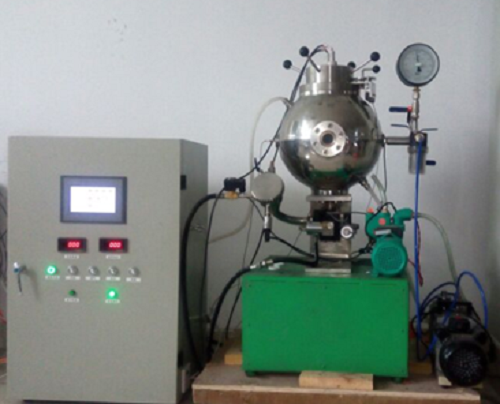During operation of fusion reactor, the tungsten dust is produced by high energy plasma-first wall interaction and accumulated in vacuum vessel. The dust will form a combustible dust-air cloud in case of a Loss of Vacuum Accident (LOVA) and corresponding dust-air explosion loads will destroy the structure of fusion reactor. In 2015, Institute of Nuclear Energy Safety Technology, Chinese Academy of Science ·FDS Team, successfully developed a dust explosion device and initiated tungsten dust explosion experiment for fusion reactor. This facility could measure explosion pressure accurately and overcome the problem of dust inhomogeneous diffusion and uneven ignition energy compared with traditional devices. In the experiment, the tungsten dust was tested in the range of concentration from 450g/cm3 to 5000g/cm3 with different chemical igniter (the maximum value was 10kJ). The results show that the maximum explosion pressure with 10kJ is about 0.4MPa. This data could provide important data support for International Thermonuclear Experimental Reactor (ITER) safety analysis. This device provides an important experimental platform for combustible dust explosion investigation in the field of metallurgy and food industries etc. 
20L explosion apparatus (Imaged by ZHOU Danna) Key Words: Fusion reactor, Tungsten dust, Explosion pressure, Safety analysis Contact: Dr. Danna Zhou, Ph.D Principal Investigator Institute of Nuclear Energy Safety Technology, Chinese Academy of Sciences, Anhui, 230031, China Tel: +86 551 65593681 E-mail: danna.zhou@fds.org.cn |